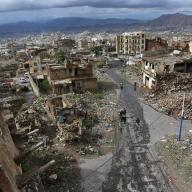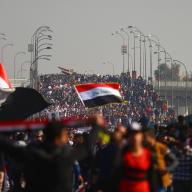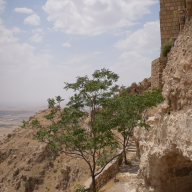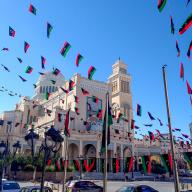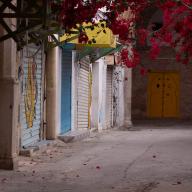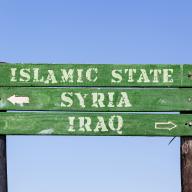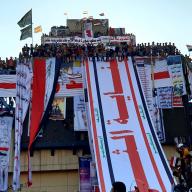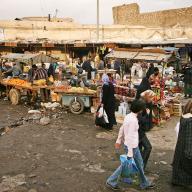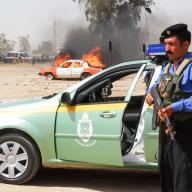The Iran–Saudi détente could ease Yemen’s troubles, but lasting peace will require local solutions. Emelie Poignant Khafagi and Dr Ahmed Morsy explore more in this SIPRI WritePeace blog.
Related commentary: Middle East and North Africa
Iraq since the invasion: 20 years in SIPRI data
To commemorate the upcoming 20th anniversary of the invasion of Iraq on 20 March, SIPRI has prepared this Topical Backgrounder along with an Interactive chronology of security developments in Iraq spanning from 2002 to 2021. These materials are components of a larger collection of new materials that SIPRI is creating to commemorate the anniversary.
Libya’s electoral limbo: The crisis of legitimacy
Eleven years after the downfall of Muammar Gaddafi, the situation in Libya remains extremely volatile. Elections planned for 24 December last year did not take place and the electoral process collapsed. As a result, Libya entered yet another period of deep political crisis, at the heart of which is (once again) a struggle over how to create a legitimate, national government.
Cultural reconstruction is critical after Islamic State occupation
The scars left by the Islamic State group’s three-and-a-half-year occupation in northern Iraq are deep. Between 2014 and 2017, hundreds of thousands of Iraqis were killed, millions were displaced or succumbed to starvation or disease, as a result of Islamic State’s occupation and the military campaign to defeat it. Atrocities committed by the group included a genocide of the Yazidi minority in their ancestral lands in Sinjar, northern Iraq, as well as the killing and abduction of thousands of Yazidi women and girls.
The resurgence of the Islamic State in Iraq: Political and military responses
The Islamic State (IS) is back, or so the headlines say. The key thing is that IS never left. While IS may have gone underground, reorganized, and slowly rebuilt, it has continued to carry out attacks. And what is equally, if not more, concerning is that IS is growing in strength. If anything is to be learnt from the history of the organization, it is that it is vital to address this now before it grows too strong.
Tensions on Iraqi soil likely to overshadow anti-government protest demands
Amid the rapidly increasing tensions between the US and Iran, there is a real danger that the demands of the Iraqi protest movement could be side-lined. The current protests, which sprung up in October 2019, risk having their demands ignored as the Iraqi government shifts it’s focus to dealing with the current crisis.
The opportunity for local peacebuilding interventions: The case of Kirkuk
SIPRI’s latest Policy Paper ‘Building everyday peace in Kirkuk, Iraq: The potential of locally focused interventions’ provides an understanding of how, when and by whom acts of peace and conflict are carried out at the everyday level, and gives policy recommendations for interventions that would address the local side of peacebuilding. This essay highlights some core areas where there is an opportunity for peacebuilding interventions to affect real change in the everyday lives of Kirkukis.
Governing the ‘ungoverned’: Suppressing the Islamic State’s insurgency in Iraq
As the Iraqi Counter Terrorism Service (CTS) launched an operation to target the Islamic State in the Hamrin mountain range in Iraq on the 11 April 2019, it is pertinent to examine the importance of the Iraqi state’s involvement in governance and sustainable security in such isolated spaces.

